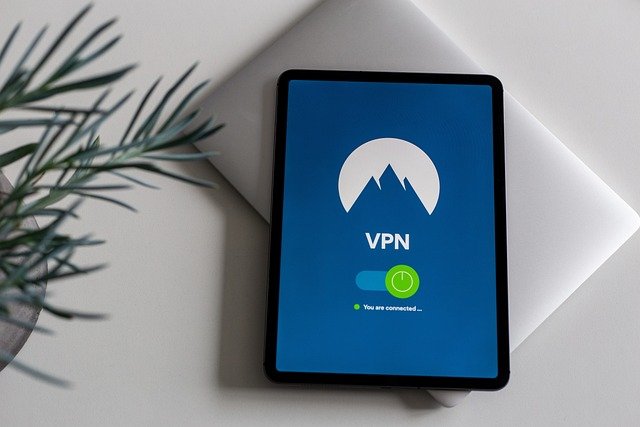Protect Your Online Privacy with Advanced VPN Tools
Using a VPN helps ensure your digital footprint stays private while browsing on public or shared networks. These tools encrypt your connection, shielding sensitive information from potential cyber threats and unauthorized data tracking. Whether for work or personal use, a VPN provides an additional layer of online protection, giving you peace of mind across devices.

How VPNs Encrypt Data and Secure Internet Traffic
VPNs use sophisticated encryption protocols to protect your data as it travels across the internet. When you connect to a VPN server, your device creates an encrypted tunnel that scrambles all information passing through it. Most modern VPN services employ AES-256 encryption, the same standard used by governments and military organizations worldwide. This encryption process converts your readable data into complex code that would take centuries to crack using current technology.
The encryption process begins the moment your data leaves your device. Your internet traffic gets wrapped in multiple layers of security protocols, including OpenVPN, IKEv2, or WireGuard, before reaching the VPN server. This server then decrypts your data and forwards it to its intended destination, while websites and online services see the VPN server’s IP address instead of your real location.
Ways VPNs Help Access Geo-Restricted Content
Geographic restrictions limit access to content based on your physical location, but VPNs can help overcome these barriers. By connecting to servers in different countries, you can appear to browse from various locations worldwide. This capability proves particularly useful for accessing streaming services, news websites, or social media platforms that may be restricted in certain regions.
When you connect to a VPN server in another country, websites perceive your traffic as originating from that location. This process, known as IP masking, allows you to bypass regional content blocks and censorship measures. However, it’s important to note that while VPNs provide the technical capability to access geo-restricted content, users should always comply with the terms of service of the platforms they’re accessing and respect local laws and regulations.
How VPNs Improve User Privacy and Limit Tracking
Online tracking has become increasingly sophisticated, with advertisers, data brokers, and even malicious actors monitoring user behavior across the internet. VPNs significantly reduce this tracking by hiding your real IP address and encrypting your browsing data. Without access to your actual IP address, tracking companies cannot easily build comprehensive profiles of your online activities.
VPNs also protect against various forms of surveillance and data collection. Internet service providers (ISPs) typically monitor and log their customers’ browsing habits, sometimes selling this information to third parties. When using a VPN, your ISP can only see that you’re connected to a VPN server, not the specific websites you visit or the content you access. Additionally, public Wi-Fi networks, which are often unsecured and vulnerable to attacks, become much safer when protected by VPN encryption.
Understanding VPN Server Networks and Performance
The effectiveness of a VPN service largely depends on its server network infrastructure. Quality VPN providers maintain servers in multiple countries, offering users various connection points to choose from. Larger server networks typically provide better performance and more reliable connections, as traffic gets distributed across numerous servers rather than concentrated on a few.
Server proximity also affects connection speed and latency. Connecting to nearby servers usually results in faster browsing speeds, while distant servers may introduce some lag. Modern VPN services often include automatic server selection features that connect you to the optimal server based on your location and current server loads.
| Provider | Monthly Cost | Annual Cost | Server Count | Countries |
|---|---|---|---|---|
| ExpressVPN | $12.95 | $99.95 | 3000+ | 94 |
| NordVPN | $11.95 | $59.88 | 5400+ | 60 |
| Surfshark | $12.95 | $47.88 | 3200+ | 100 |
| CyberGhost | $12.99 | $47.64 | 7000+ | 91 |
Prices, rates, or cost estimates mentioned in this article are based on the latest available information but may change over time. Independent research is advised before making financial decisions.
Choosing the Right VPN Features for Your Needs
Different VPN services offer varying features and capabilities designed to meet specific user requirements. Essential features to consider include kill switch protection, which automatically disconnects your internet if the VPN connection drops, and DNS leak protection, which prevents your browsing data from accidentally bypassing the VPN tunnel.
Advanced features like split tunneling allow you to route some applications through the VPN while others use your regular internet connection. Multi-device support enables protection across all your devices with a single subscription, while no-logs policies ensure that VPN providers don’t store records of your online activities.
VPNs represent a fundamental tool for maintaining online privacy and security in our interconnected world. By encrypting your data, masking your location, and limiting tracking capabilities, these services provide essential protection against various digital threats. While choosing a VPN service involves considering factors like server networks, pricing, and specific features, the investment in online privacy protection becomes increasingly valuable as digital surveillance and data collection continue to expand across the internet landscape.




